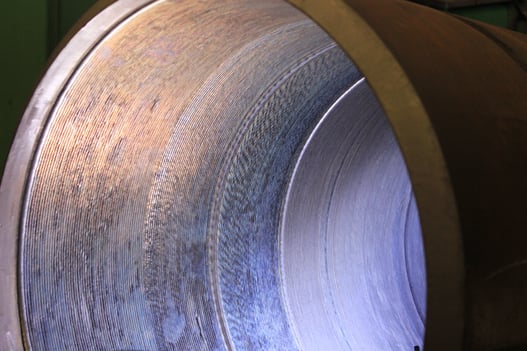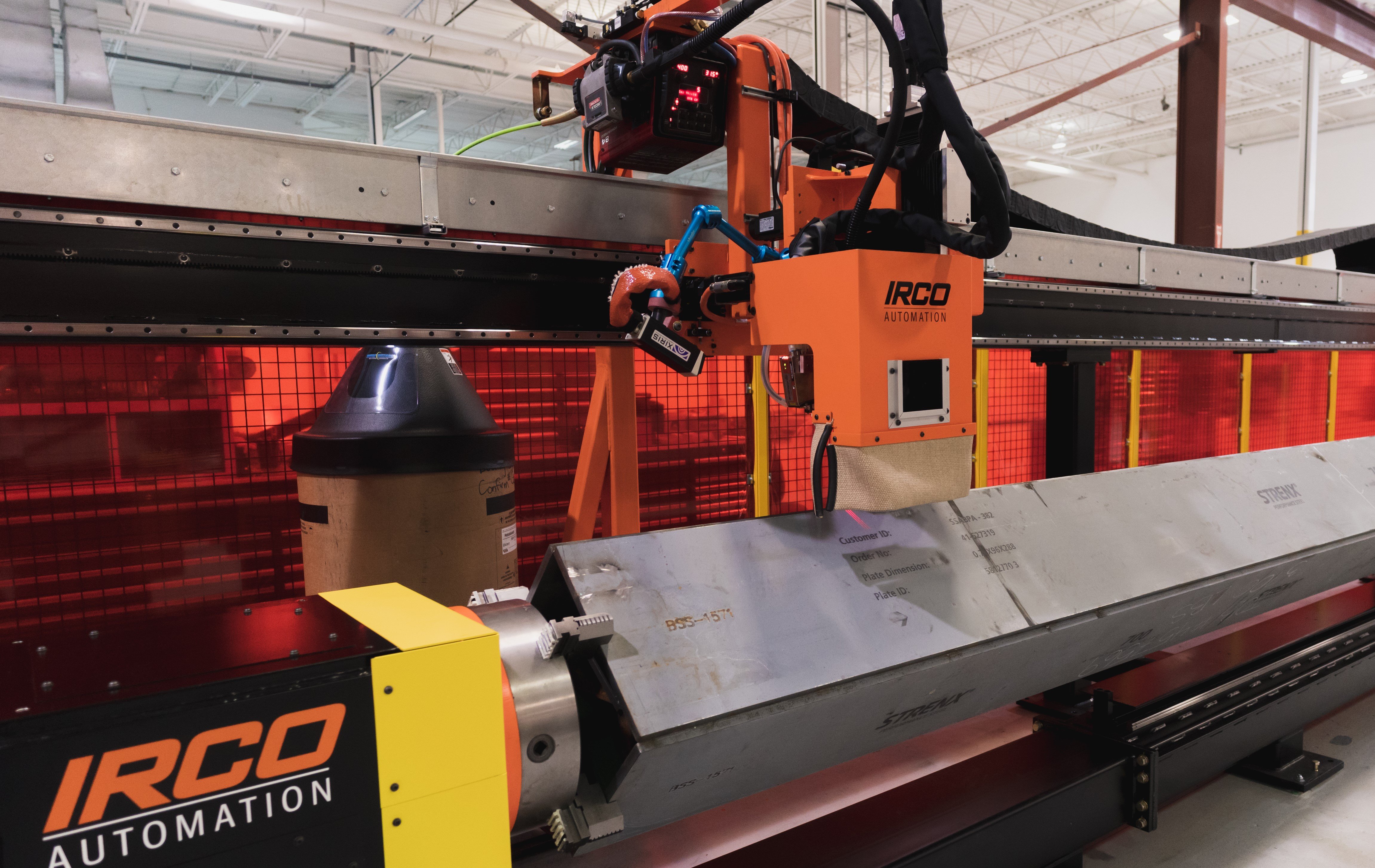Power plants, petrochemical and other large bulk processing facilities all have to go through prolonged periodic shutdowns to either repair or replace sections of boilers, ovens or other vessels that endure significant wear during use. Repairing the walls of these vessels with a new layer of wear resistant material is something that needs to be done during the overhaul process. The overhaul process, where repairs to the walls in the vessels in these facilities are made, is often done by independent MRO (Maintenance, Repair and Overhaul) contractors.

A Typical Complex, Large-Scale Petrochemical Plant (courtesy Linde Engineering)
The Challenges for MRO Contractors:
Traditionally MRO contractors perform this work during a shutdown by entering the vessels to be repaired and perform the cladding operations required on the vessel walls from inside the vessels. The process is difficult and dangerous: working inside the vessel can be cramped, hot work that can quickly become filled with the toxic fumes that are generated as a result of repairs made to the steel walls. In an effort to protect their health, the operators often wear a full body protective suit with respirators while using a weld tractor to perform the cladding process. The operator has to remain alert to properly monitor the bead of the cladding material to ensure it is being placed properly without any deviations from its intended path.
The challenges with this type of work are both safety and financial. Due to the nature of the work, operators cannot spend prolonged periods of time working inside the vessel as the temperature within the tank can rise to over 500 degrees Fahrenheit. This requires frequent work breaks which waste valuable production time. In addition, the risk of fire occurring inside the vessel at any time is always a threat. It is a harsh environment in which to work!
They must also consider the cost of having a large number of highly qualified staff working inside the vessel which can make for an extremely expensive repair and overhaul project. Highly experienced staff are required to work the equipment and make qualified decisions on an ongoing basis as to the quality of the cladding bead being deposited.
The Solution for Winning New Business:
Recent MRO projects have seen major contractors win significant business by changing up their business model. Instead of having a large number of operators operate welding equipment inside the vessels, they have implemented a number of Xiris Weld Cameras on their associated weld tractor equipment inside the pressure vessel and had their operators operate their weld tractors and monitor the cladding process from outside the vessel.

Weld Overlay Cladding Inside a Large Pressure Vessel (courtesy Arc Energy Resources)
The benefits of using Xiris weld cameras to assist with the overhaul process are plentiful. Firstly, using a camera to monitor the cladding process allows operators to comfortably sit outside the vessel and monitor the process in a safe, comfortable place while the cladding within the vessel can run continuously as the operators no longer need to take frequent breaks. Operators can be easily replaced with another operator when their shift is done. This better use of time permits the MRO contractors to finish their overhaul work at the plant quicker, saving time and money for both the contractors and the plant owners who can get their plant back operating sooner.
Secondly, Xiris weld cameras can be placed to view both welding torch from a leading and trailing perspective, allowing operators to better see all aspects of their welding process. By not being submerged into the harsh conditions of a vessel, operators can also focus better on their task of monitoring the welds.
|
Typical Leading View of Torch |
Typical Trailing View of Torch |
Finally, recorded video from the Xiris weld cameras can be archived for off-line review. The recorded video can act as a form of insurance for the owners of the facility: if something breaks or deteriorates prematurely, the recorded video can be used to help explain the source of the problem and identify if any negligence was made during the overhaul.
In conclusion, Xiris weld cameras can be a real game changer when repairing and overhauling large power, petrochemical and bulk processing facilities. The benefits of the cameras help to eliminate many of the challenges associated with using an MRO contractor, making the entire MRO process safer and more effective.
To learn more, talk to one of our experts!
Follow Xiris on social media for regular updates or subscribe to our blog!



.png)

.png)
